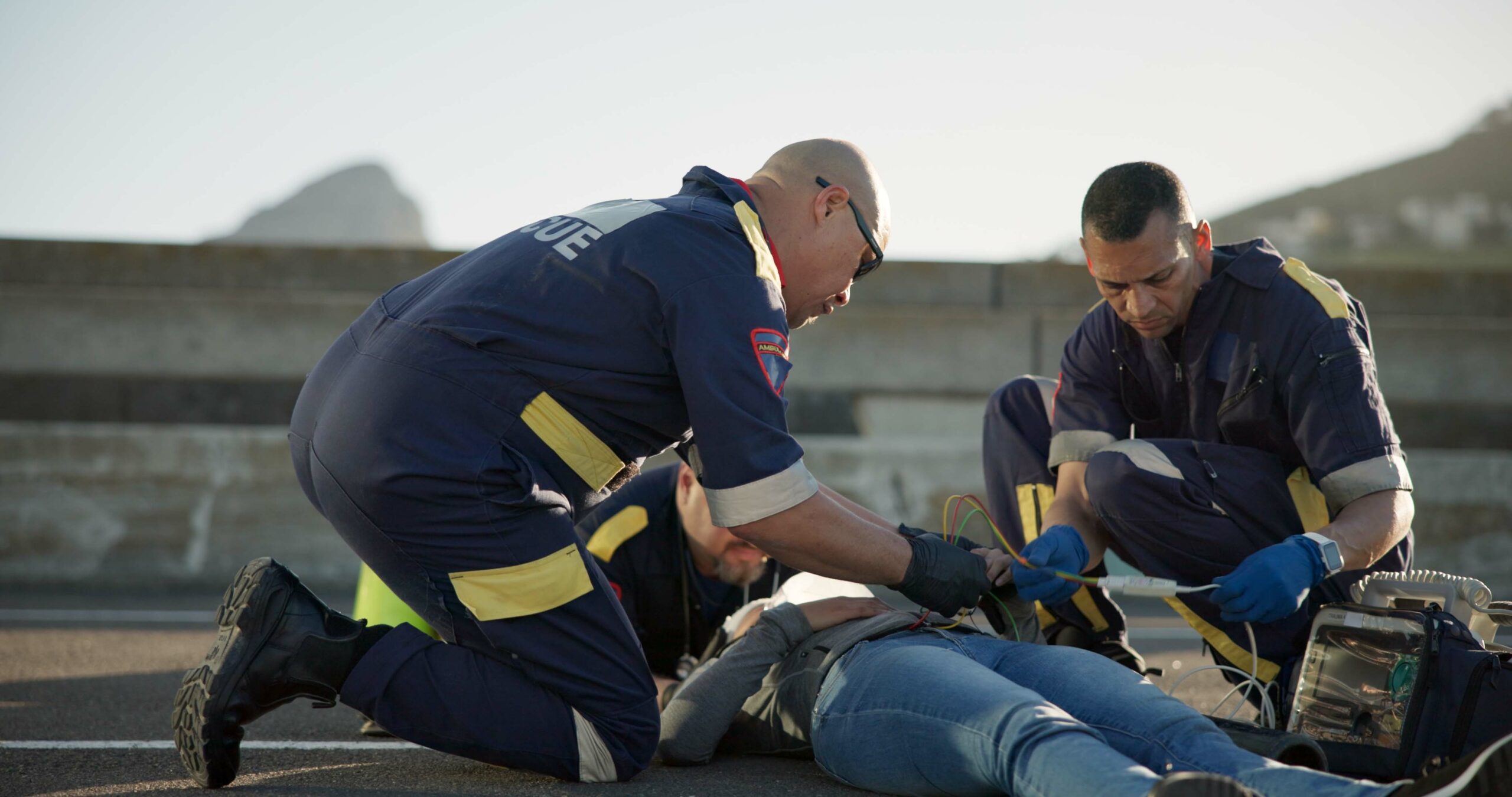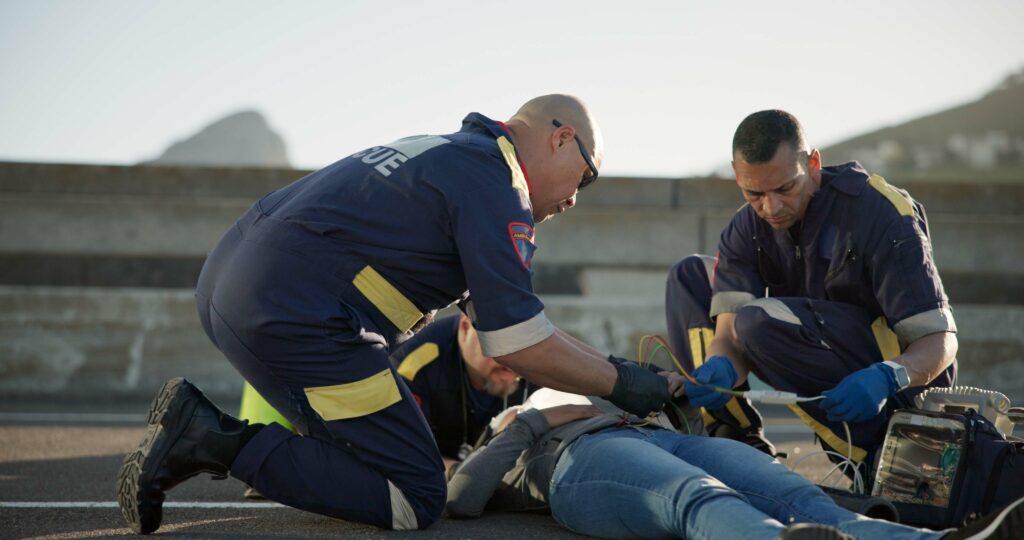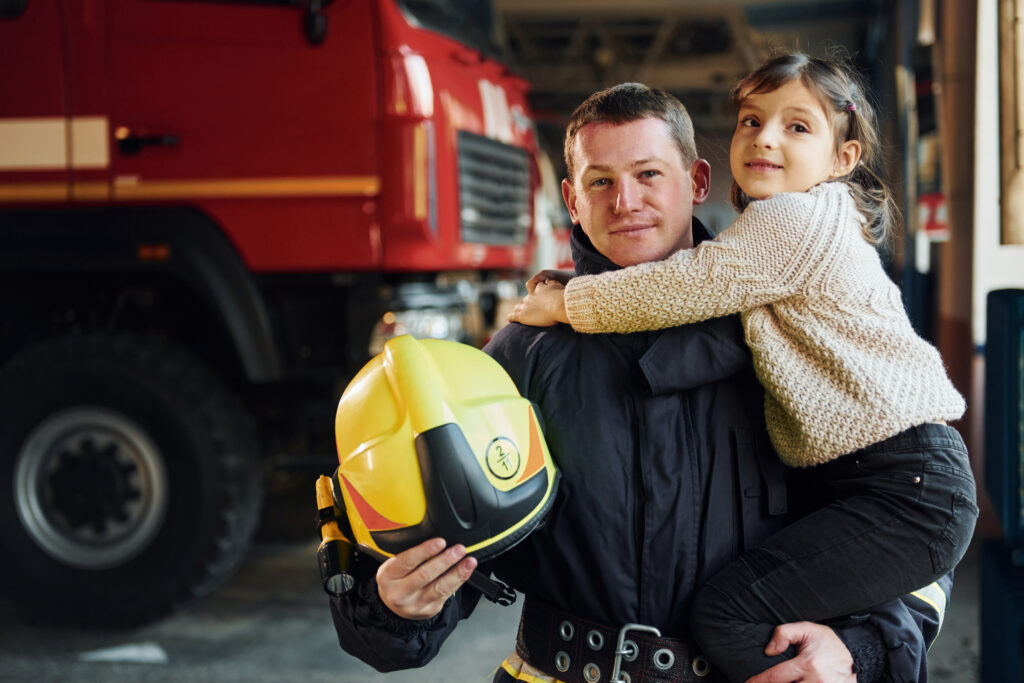Behind Closed Doors: Confidential Treatment for First Responders Facing PTSD and Trauma
3/6/2025 by Markie Bryant

First responders, including police officers, firefighters, and EMTs, regularly encounter intense and traumatic situations that can lead to serious mental health challenges, especially PTSD. Due to the stigma around seeking help, many hesitate to get the support they desperately need. Confidential PTSD treatment for first responders plays a crucial role in breaking down these barriers, offering them a safe space to heal without the fear of judgment or risking their careers. This article explores the importance of such confidential treatment options and how they provide the necessary support for first responders facing immense pressures.
Key Takeaways
- First responders face high rates of PTSD and depression due to their challenging work environments.
- Stigma around mental health often prevents first responders from seeking help, leading to increased risk of suicide.
- Confidential treatment options, like After Action’s program, provide safe spaces for healing without job repercussions.
- Building trust within the first responder community is crucial for effective mental health support.
- Peer support programs can be more effective than traditional therapy, as they allow first responders to connect with those who understand their experiences.
Understanding the Unique Challenges Faced by First Responders
First responders, including police officers, firefighters, and paramedics, face significant psychological challenges due to the nature of their work. They are often the first on the scene during emergencies, which exposes them to traumatic events regularly. This constant exposure can lead to various mental health issues, including PTSD, depression, and anxiety.
The Nature of Their Work
- High-stress environments: First responders deal with life-and-death situations daily.
- Emotional toll: Witnessing trauma and suffering can lead to emotional exhaustion.
- Physical demands: The job often requires physical strength and endurance, adding to stress.
Common Mental Health Issues
First responders may experience:
- PTSD: A common result of repeated exposure to trauma.
- Depression: Feelings of sadness and hopelessness can arise from their experiences.
- Anxiety: Constant worry about their safety and the safety of others.
Impact on Personal Lives
The challenges faced at work can spill over into personal lives:
- Strained relationships: Family and friends may not understand the stress they endure.
- Isolation: Many first responders feel alone in their struggles, leading to withdrawal from social activities.
- Guilt and remorse: They may grapple with feelings of guilt, especially after witnessing tragic events.
Understanding the psychological impact on first responders is crucial. These unsung heroes face significant psychological challenges like PTSD, depression, and anxiety, which are often left unspoken. To truly support them, we must acknowledge their struggles and provide appropriate resources.
The Stigma Surrounding Mental Health in First Responders

Fear of Appearing Weak
Many first responders feel that seeking help for mental health issues makes them appear weak. This stigma can prevent them from accessing the mental health resources for first responders that they desperately need. The belief that they should be able to handle trauma without assistance is deeply ingrained in their culture.
Concerns About Job Security
Another significant concern is the fear that seeking help could jeopardize their job security. First responders worry that if they admit to struggling with mental health, it may lead to negative consequences in their careers. This fear can create a barrier to seeking the mental health support they deserve. After Action's mental health program for first responders proposes a solution with confidential treatment in a 2-Week Mental Health Tune-Up option to help those who need immediate, intensive care without the long-term commitment of traditional treatment. This program allows first responders to address their PTSD and other mental health challenges in a safe, private setting, ensuring their healing process does not interfere with their careers or personal lives.
Breaking Down Barriers
To combat this stigma, it is essential to foster an environment where first responders feel safe discussing their mental health. Here are some strategies to help break down these barriers:
- Normalize conversations about mental health within the community.
- Educate first responders about the importance of seeking help.
- Promote peer support programs that allow them to share experiences in a safe space.
It’s crucial to remind first responders that needing help is not a sign of weakness, but rather a step towards strength and resilience.
By addressing these concerns, we can encourage first responders to prioritize their mental health and utilize available resources, such as the 2-Week mental health tune up by After Action.
Confidential PTSD Treatment Options for First Responders
First responders face unique challenges that can lead to PTSD and other mental health issues. It’s crucial for them to have access to confidential mental health treatment for first responders. This ensures they can seek help without fear of judgment or repercussions.
Importance of Confidentiality
Confidentiality is vital in encouraging first responders to seek help. Knowing that their struggles will remain private can make a significant difference. Here are some key points:
- Trust: Building trust between the responder and the counselor is essential.
- Safety: A confidential environment allows responders to express their feelings freely.
- Support: Confidentiality fosters a supportive atmosphere where healing can begin.
Types of Treatment Programs
There are various treatment options available for first responders dealing with PTSD, tailored to their unique experiences. These include:
- Therapy: Individual or group therapy sessions specifically designed to address the challenges first responders face, providing a safe space to process trauma.
- Sensory Modulation Therapy: A cornerstone of After Action's treatment program, this innovative approach helps first responders manage stress by using sensory input to regulate emotions and reduce anxiety, offering immediate relief during times of distress.
- Medication: Prescribed medications can assist in managing symptoms like anxiety, depression, and PTSD, providing additional support during recovery.
- Lifestyle Changes: Incorporating healthy habits such as regular exercise, balanced nutrition, and proper sleep can improve overall well-being and resilience in the face of daily challenges.
Building Trust Within the First Responder Community
Cultural Sensitivity in Counseling
Building trust with first responders starts with understanding their unique culture. Counselors must be aware of the challenges these heroes face daily. This means recognizing their experiences and the emotional toll that comes with their work. By showing genuine interest in their lives and struggles, counselors can create a safe space for open dialogue.
Establishing Relationships
To foster trust, it’s essential to establish relationships outside of formal counseling sessions. Here are some effective strategies:
- Attend community events and meetings.
- Engage in ride-alongs to experience their work firsthand.
- Participate in training sessions to understand their challenges better.
These actions help break down barriers and show first responders that counselors are not just professionals but also allies in their journey.
Peer Support Programs
Peer support is vital in the first responder community. It allows individuals to connect with others who understand their experiences. Programs that train first responders to recognize signs of distress in their colleagues can be incredibly beneficial. This approach not only promotes supporting police officers and firefighters with PTSD but also helps in creating a culture of openness and understanding.
Building trust takes time, but it is essential for effective treatment. When first responders feel understood and supported, they are more likely to seek help when needed.
By focusing on these areas, we can help first responders feel more comfortable discussing their mental health and seeking the support they deserve. Breaking down the stigma surrounding mental health issues is crucial for their well-being and the safety of the communities they serve.
After Action is Partnering with First Responder Agencies Nationwide
At After Action, we are deeply committed to supporting the mental health of first responders. We have proudly partnered with first responder agencies across the country, installing Sensory Rooms and providing specialized training in Sensory Modulation Therapy. These initiatives are designed to offer immediate relief and long-term mental health support for first responders dealing with trauma and stress. If your agency is interested in learning more or would like to explore partnership opportunities, please reach out to us—we're here to help.
Effective Therapeutic Techniques for First Responders
First responders face unique challenges that can lead to daily trauma and mental health issues. To help them cope, various therapeutic techniques have been developed. Here are some effective methods:
Sensory Modulation Therapy
A core component of After Action's treatment program, Sensory Modulation Therapy uses sensory inputs like touch, sound, and movement to help first responders regulate their emotions during high-stress situations. This technique provides immediate relief by allowing responders to calm their nervous systems, reducing anxiety and enhancing focus.lief but also equip first responders with tools to handle future stressors. By embracing these techniques, they can foster a healthier mindset and better cope with the demands of their challenging roles.
Mindfulness and Meditation
Mindfulness practices help first responders stay present and reduce anxiety. Techniques like focused breathing can calm the mind and body, while regular meditation builds resilience against stress.
Cognitive Behavioral Therapy (CBT)
CBT helps individuals identify and change negative thought patterns, providing coping strategies to manage stress and anxiety. It enables clients to separate themselves from unhealthy thinking, which is crucial for processing trauma.
Eye Movement Desensitization and Reprocessing (EMDR)
EMDR is effective for processing traumatic memories and helps clients reduce anxiety related to specific tasks. This technique allows first responders to visualize grounding themselves during chaotic situations, making them feel more in control.
Promoting Self-Care and Peer Support Among First Responders

Encouraging Self-Care Practices
First responders often face intense situations that can take a toll on their mental health. Promoting self-care is essential for their well-being. Here are some effective self-care practices:
- Physical Activity: Engaging in regular exercise helps reduce stress and improve mood.
- Mindfulness Techniques: Simple practices like deep breathing or meditation can help calm the mind.
- Healthy Communication: Talking about feelings with trusted colleagues can foster a supportive environment.
Training for Peer Support
Creating a culture of support among first responders is vital. Training programs can help them recognize when a colleague may need help. Some key aspects of peer support training include:
- Identifying Warning Signs: Learning to spot signs of distress in coworkers.
- Effective Communication: Training on how to approach someone who may be struggling.
- Creating Safe Spaces: Establishing environments where first responders feel comfortable discussing mental health.
Sharing Success Stories
Sharing personal experiences can inspire others. When first responders talk about their journeys, it can encourage their peers to seek help. Success stories can:
- Normalize the conversation around mental health.
- Show that recovery is possible.
- Build a sense of community and trust.
Building a supportive environment is crucial. When first responders feel safe, they are more likely to seek help and support one another.
By focusing on self-care and peer support, we can help first responders navigate their challenges more effectively. The goal is to create a safe and supportive workplace culture that promotes discussions about mental health and opens up lines of communication. This approach not only benefits individuals but strengthens the entire community.
Conclusion
In conclusion, it’s clear that first responders face tough challenges that can lead to serious mental health issues like PTSD. Many of these brave individuals hesitate to seek help due to fears about their jobs and the stigma around mental health. However, programs like After Action’s two-week intensive mental health tune-up offer a safe and private way for them to get the support they need. By ensuring confidentiality, these programs allow first responders to heal without worrying about their careers. It’s important to remember that asking for help is a sign of strength, not weakness. With the right support, first responders can continue to serve their communities while taking care of their mental health.
Frequently Asked Questions
What are the common mental health issues faced by first responders?
First responders often deal with mental health problems like PTSD, anxiety, and depression due to their exposure to traumatic events.
Why do first responders hesitate to seek help for their mental health?
Many first responders worry about being seen as weak or fear it might affect their job security, which makes them reluctant to ask for help.
What types of confidential treatment options are available for first responders?
There are various confidential treatment programs, including intensive mental health programs that focus on providing support without fear of repercussions.
How can peer support help first responders?
Peer support allows first responders to connect with others who understand their experiences, making it easier for them to share and receive help.
What role does self-care play in the mental health of first responders?
Self-care is crucial for first responders as it helps them manage stress and maintain their mental well-being while performing their demanding jobs.